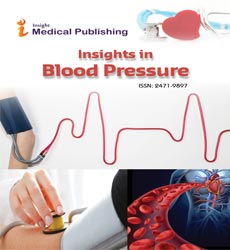Abstract
Relation among Blood Pressure, Heart Rate and Creatinine in Kidney Transplanted Patients
Late graft dysfunction in subjects with kidney transplantation is a major topic of interest, and is due to immunological and non-immunological factors. Increased blood pressure and modified cardiac output is thought to play a role in this process. Here we hypothesize that the relationship between kidney function and cardiac output might be impaired in early stages of kidney allograft dysfunction. To test this hypothesis, we analyzed serial data from 27 transplanted subjects and used these data to derive the relationship between serum creatinine [Cr] and three main parameters connected to the cardiac output that is the heart rate, the systolic blood pressure and the diastolic blood pressure. The main result of the present study is that by focusing on the known relationship between renal function [indexed by creatinine levels] and heart rate or blood pressure, it is possible to show that increases in creatinine levels occur when this relationship is disrupted. In other words, when the changes in creatinine can be explained by heart rate modifications, the system is healthy. Conversely, as soon as the kidney is not responding adequately to a modification in the heart rate, a decrease in kidney function can be observed. These results suggest a new way to look at time-series data in patients underwent kidney transplantation.
Author(s):
Davide Viggiano and Rosa Maria Pollastro
Abstract | Full-Text | PDF
Share this

Google scholar citation report
Citations : 71
Insights in Blood Pressure received 71 citations as per google scholar report
Abstracted/Indexed in
- Google Scholar
- China National Knowledge Infrastructure (CNKI)
- Directory of Research Journal Indexing (DRJI)
- WorldCat
- Secret Search Engine Labs
Open Access Journals
- Aquaculture & Veterinary Science
- Chemistry & Chemical Sciences
- Clinical Sciences
- Engineering
- General Science
- Genetics & Molecular Biology
- Health Care & Nursing
- Immunology & Microbiology
- Materials Science
- Mathematics & Physics
- Medical Sciences
- Neurology & Psychiatry
- Oncology & Cancer Science
- Pharmaceutical Sciences
